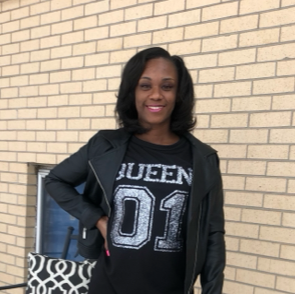CU Denver SPA Student Queen'Esther Pompee research addresses housing crisis in Colorado, receives recognition from ARNOVA, and influenced recent state legislation
Dee Dee Flynn | School of Public Affairs Jan 9, 2024
Queen'Esther Pompee is an undergraduate student at the University of Colorado Denver where she majors in Public Administration from the School of Public Affairs. We sat down with Queen to find out more about her research on the housing crisis in Colorado and her recent honors.
What is ARNOVA’s Undergraduate Diversity Scholars and Leaders Professional Development Program and what does it mean for you to be part of this program?
The Association for Research on Nonprofit Organizations and Voluntary Action (ARNOVA) is a prestigious international organization that aims to advance the understanding of nonprofit organizations, philanthropy, and volunteerism by conducting research. I felt honored to be a part of the ARNOVA Undergraduate Diversity Scholars and Leaders Professional Development Program, as it is a once-in-a-lifetime opportunity for me.
As someone who is deeply passionate about promoting social change and empowering communities, being selected for this program is a significant milestone in my academic and professional journey. It is a recognition of my potential to make a meaningful contribution to the nonprofit sector, and a validation of my commitment to promoting diversity and inclusion, which are values that I hold dear.
Through this program, I had the chance to interact with other scholars and professionals who share my interests. This provided me with a unique platform to expand my knowledge of nonprofit organizations' complexities and nuances and explore their impact on society. This program's exposure to cutting-edge research, mentorship opportunities, and professional networks has undoubtedly enhanced my skills and broadened my perspective.
You recently won Honorable Mention for your poster at ARNOVA, which is an impressive honor. Can you share more about your poster and research?
I researched the housing crisis in Colorado, which is a problem that affects many communities. I learned about these issues by attending renters' forums in Denver County, Arapahoe County, and El Paso County. I heard firsthand about the difficulties residents face in securing housing, such as rental housing discrimination and credit score requirements that disproportionately impact less advantaged individuals.
To address the complex issue at hand, I utilized various research methods. Firstly, I conducted a review of existing literature to gain an understanding of what had previously been studied. I also studied Senator Eggmens' bill from California (SB 1335 – Discrimination: housing: credit history of persons receiving housing subsidies). Secondly, I conducted interviews with stakeholders and renters who were involved in housing issues. I then organized focus groups to gather a more diverse range of community experiences and opinions. Thirdly, I recruited 8 renters from different backgrounds to go undercover to make observations of the housing market to determine the real barriers faced by individuals. Lastly, I analyzed quantitative data to establish a statistical foundation for my conclusions and evaluated current policies to identify areas for improvement.
My research has influenced recent legislative efforts in Colorado, specifically SB 23-184, which proposes that landlords may no longer consider credit scores for some housing applicants. This legislation aims to remove a significant obstacle to affordable housing and contribute to a more equitable housing system.
I am proud of my research's impact, and I am committed to exploring effective solutions to housing challenges in Colorado and beyond.
What excites you about your research?
My research is not just an academic exercise; it's one of my superpowers. After realizing that I could make a difference in my state, I discovered that a combination of research, negotiation, community collaboration, and data skills would be the perfect recipe for success. Diving into research is like walking into a candy store; there's so much to discover, and every piece of information I find is a treat that could change the game or open new doors.
It's the thrill of gathering all these insights—like collecting gems—that can lead to significant changes or spark new chances for people. And the best part? The knowledge I gained from my research sticks with me. It's mine to keep, and nobody can take it away. That's what's so exciting: knowing that with every bit of research, I'm not just learning—I'm gaining the power to make a difference.
Is there anything you would like to share with current or prospective students who would like to take a page from your book and be a leader in the public affairs space?
Firstly, nurture a deep passion for research. In public service, research is your compass—it helps you navigate complex issues and guides you toward informed decisions. Approach it with curiosity and eagerness to learn; the insights you gain are crucial in shaping effective public policies.
Developing strong negotiation skills is also vital. In public service, you'll often find yourself at the intersection of varying interests and viewpoints. Being adept at negotiation enables you to effectively mediate and advocate for solutions that serve the greater good.
Remember, authentic leadership in public service is about inspiring and enabling others. Staying true to your core values and remaining dedicated to the causes you champion is essential. Be open to diverse perspectives, especially from your peers, mentors, and the communities you serve. Their experiences can significantly deepen your understanding of the issues at hand.
Networking plays a critical role in public service. Foster connections with industry professionals, participate actively in relevant events and engage in meaningful dialogues. These relationships can be the gateway to new opportunities and collaborative ventures.
Lastly, perseverance is key. The journey in public service can be filled with challenges, but it's through these challenges that resilient leaders are made. View every obstacle as a chance to learn and grow, and remain steadfast in your commitment to your goals.
Adhering to these principles can set you on a path to becoming a leader in public service and making a lasting impact in the community you serve.